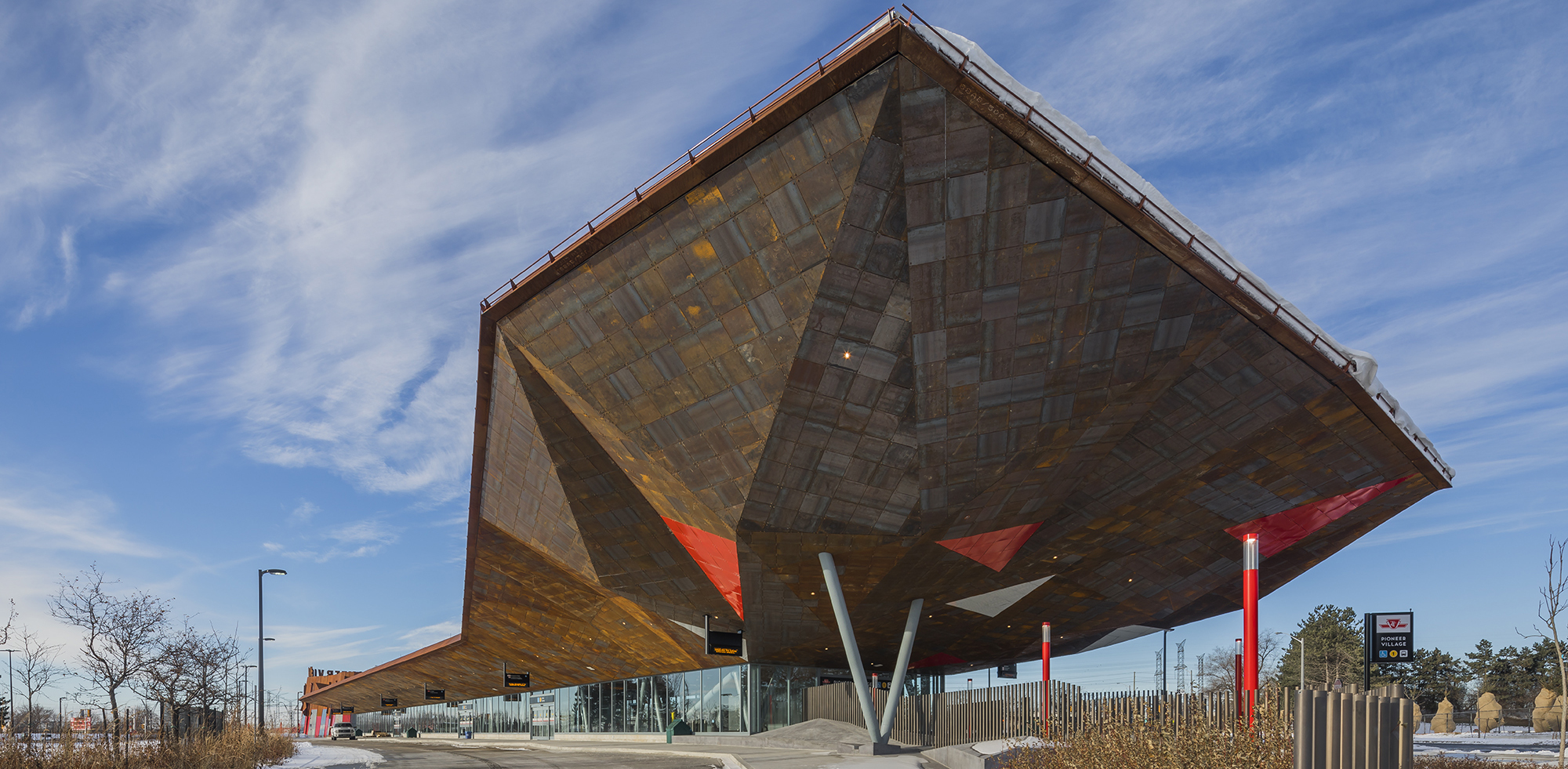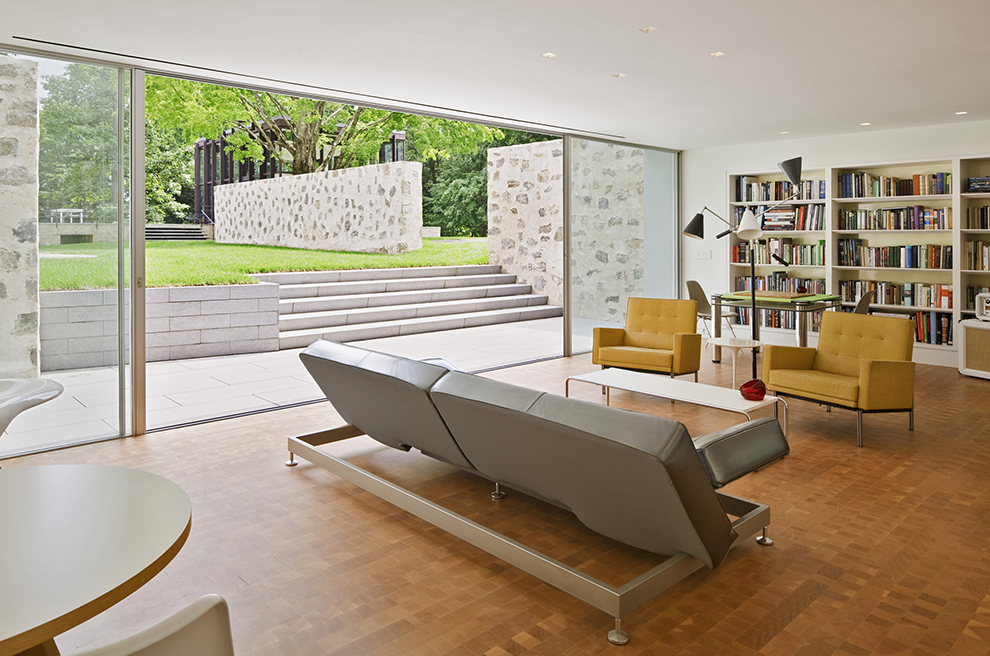Architects: Want to have your project featured? Showcase your work by uploading projects to Architizer and sign up for our inspirational newsletters.
The Australian Outback is an iconic expanse of arid wilderness and an endless source of inspiration for architects. Its dramatic landscapes — defined by vast desert plains, rugged ranges and vivid red earth — are unlike anywhere else in the world. The Outback’s unique climate, characterized by extreme temperatures and scarce rainfall, demands innovative responses from architects who seek to design in harmony with these demanding conditions while honoring the region’s cultural and ecological significance.
In recent years, architects working in remote regions of Australia have drawn on the timeless beauty and stark minimalism of the Outback to create structures that are both resilient and poetic. From using local materials that evoke the colors and textures of the desert to adopting vernacular strategies like deep eaves and natural ventilation, these designs reflect a deep respect for the land. Many projects also celebrate Indigenous knowledge and traditions, weaving cultural narratives into the built environment in meaningful ways. This synthesis of design, history and environment results in buildings that feel profoundly connected to their surroundings. The following designs reveal how architects are responding to the challenges and beauty of the Outback. They also demonstrate how architecture can cultivate connection to extraordinary landscapes.
Fitzroy Crossing Renal Hostel
By Iredale Pedersen Hook Architects, Fitzroy Crossing, Australia
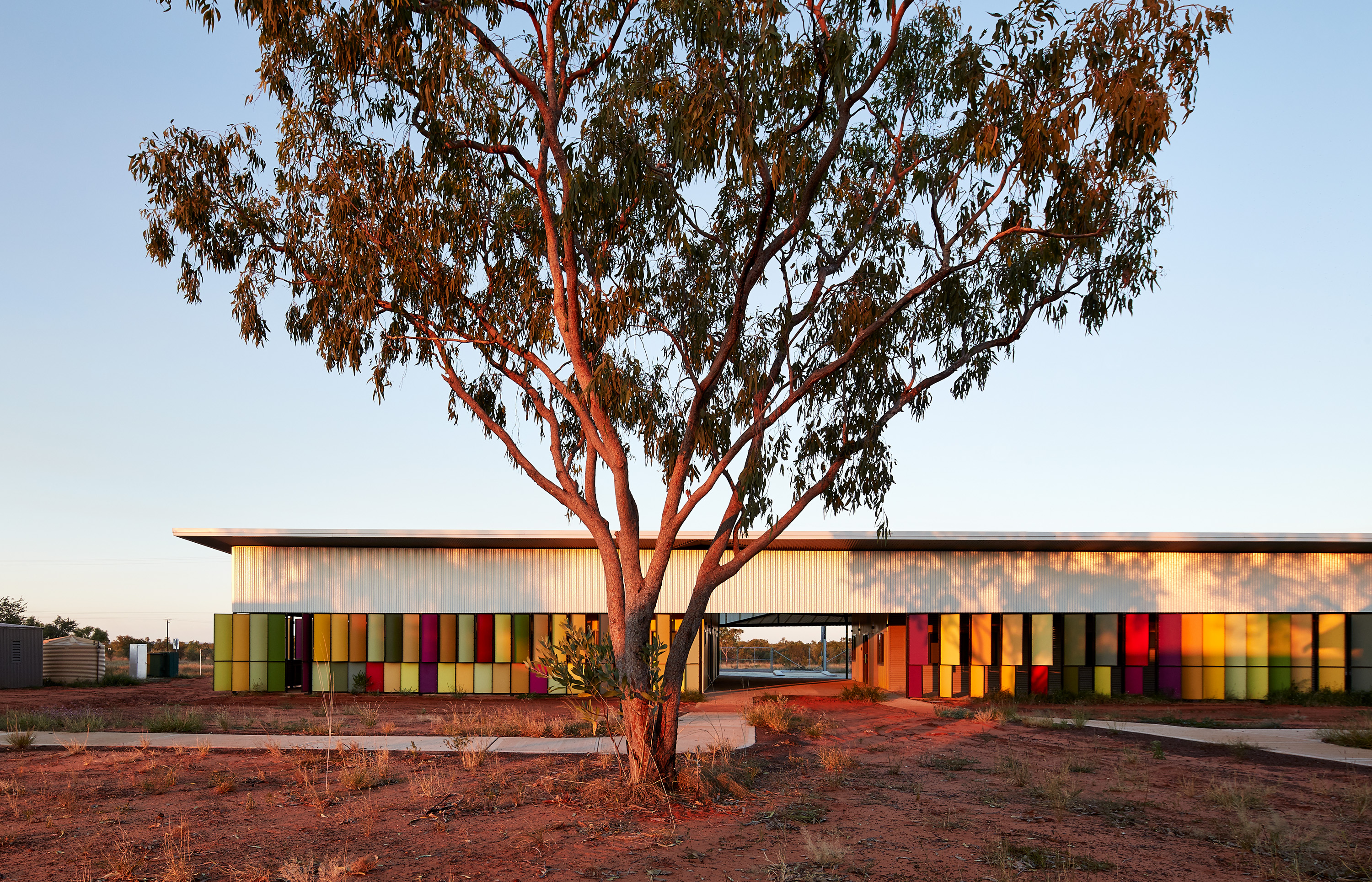
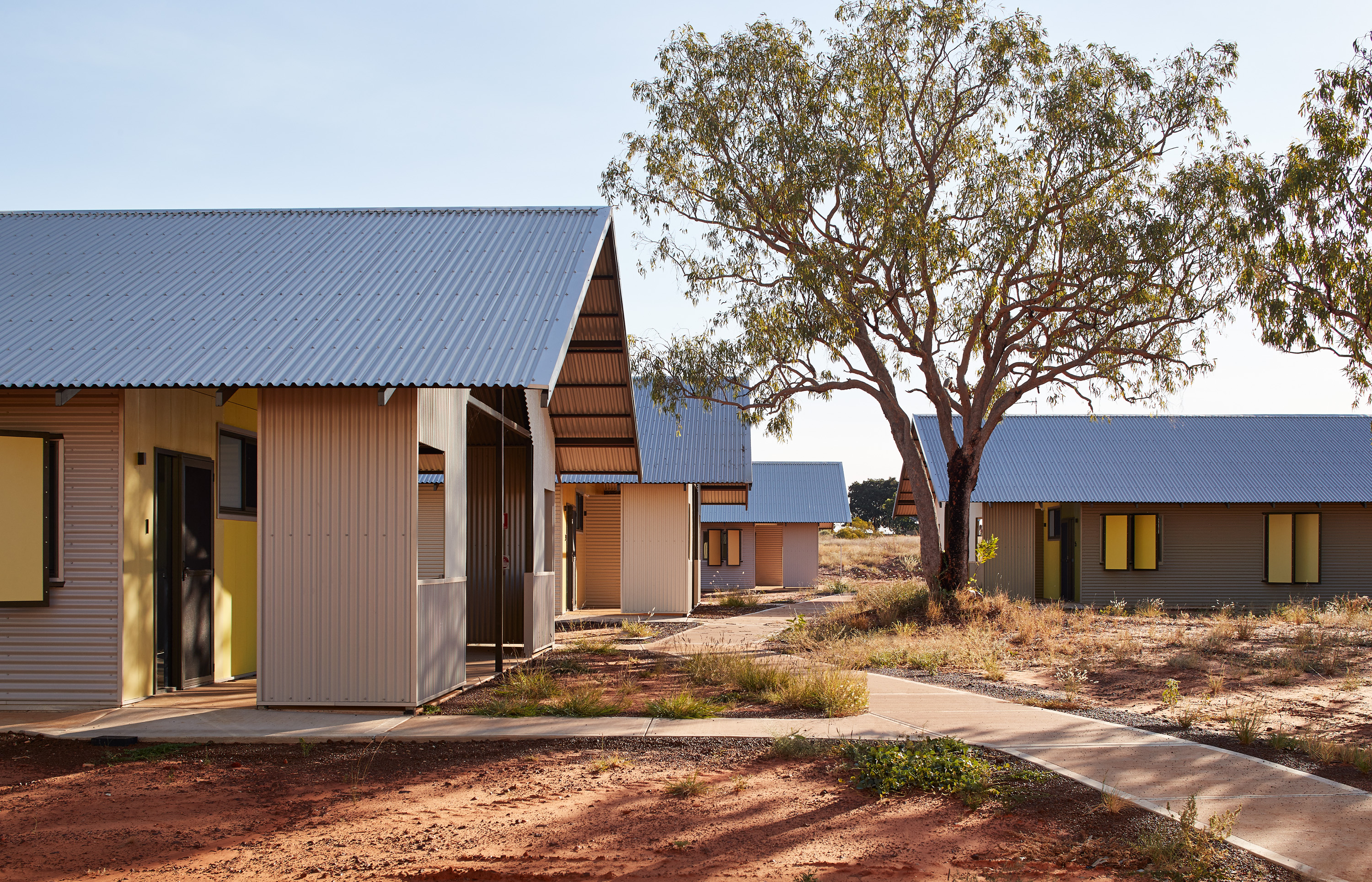
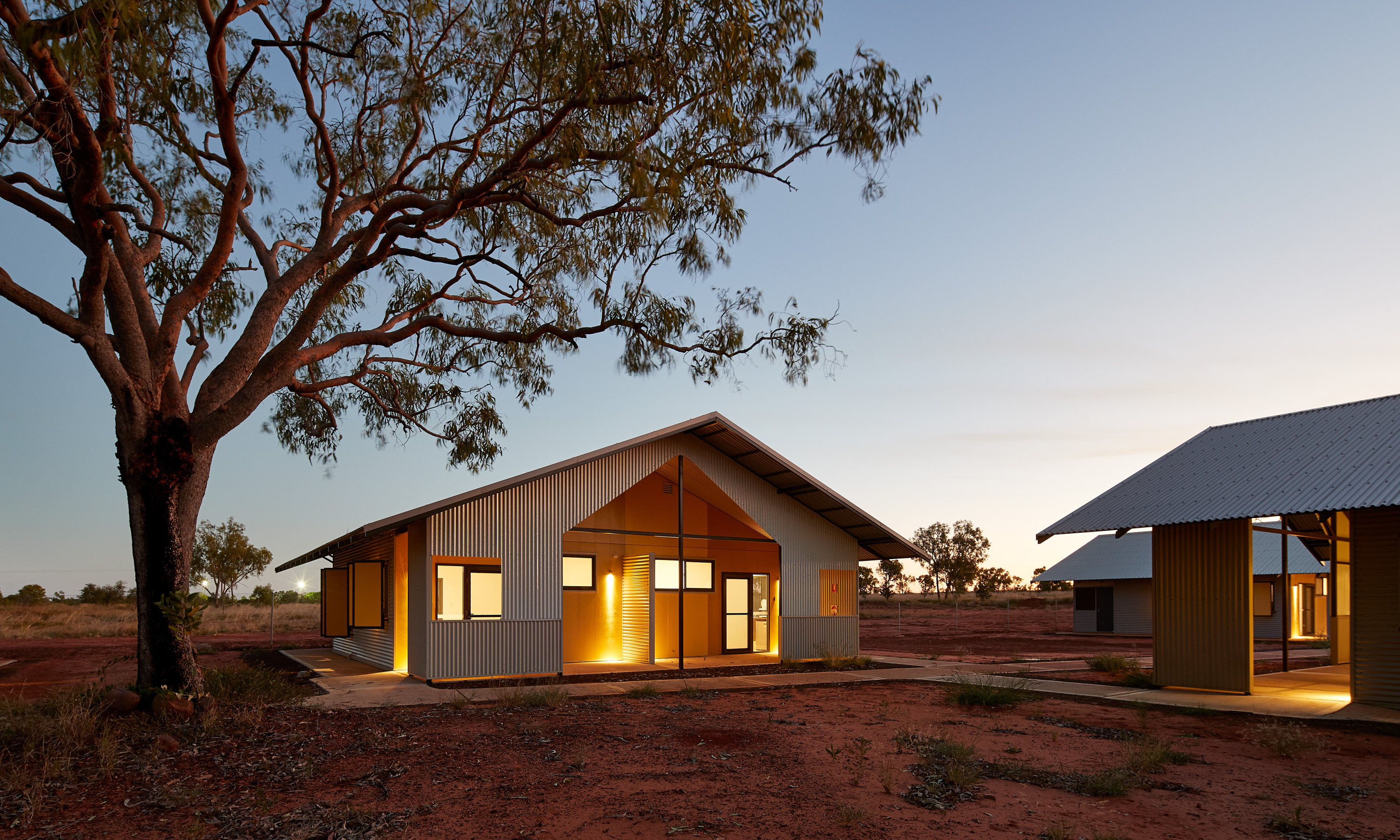 The Renal Hostel, in Western Australia, provides culturally sensitive housing for Aboriginal patients with end-stage renal disease, enabling them to remain near their families while receiving treatment. Located on Bunuba Country, this facility reflects the traditions and needs of the four local language groups through its design, which incorporates separate outdoor spaces, culturally significant plantings and pathways for “avoidance” relationships.
The Renal Hostel, in Western Australia, provides culturally sensitive housing for Aboriginal patients with end-stage renal disease, enabling them to remain near their families while receiving treatment. Located on Bunuba Country, this facility reflects the traditions and needs of the four local language groups through its design, which incorporates separate outdoor spaces, culturally significant plantings and pathways for “avoidance” relationships.
With thirteen rooms across six small houses, the design promotes privacy, community engagement and outdoor living. Durable, low-maintenance materials like steel and fiber cement accommodate the remote location’s challenges, while features like insect-proof screens and solar water systems address the harsh climate and health needs of residents.
Remote Desert Chapel
By Luigi Rosselli Architects, WA, Australia
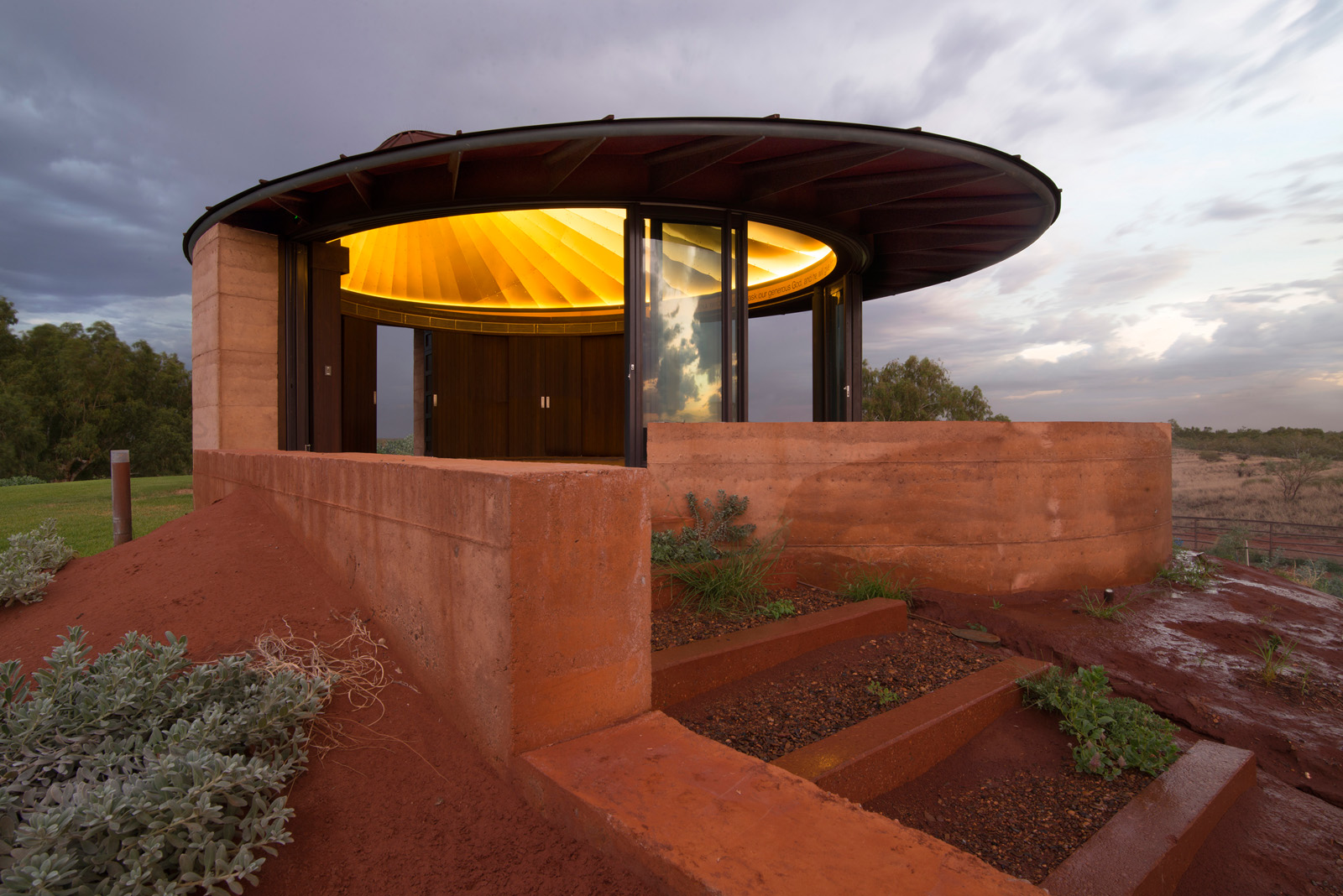
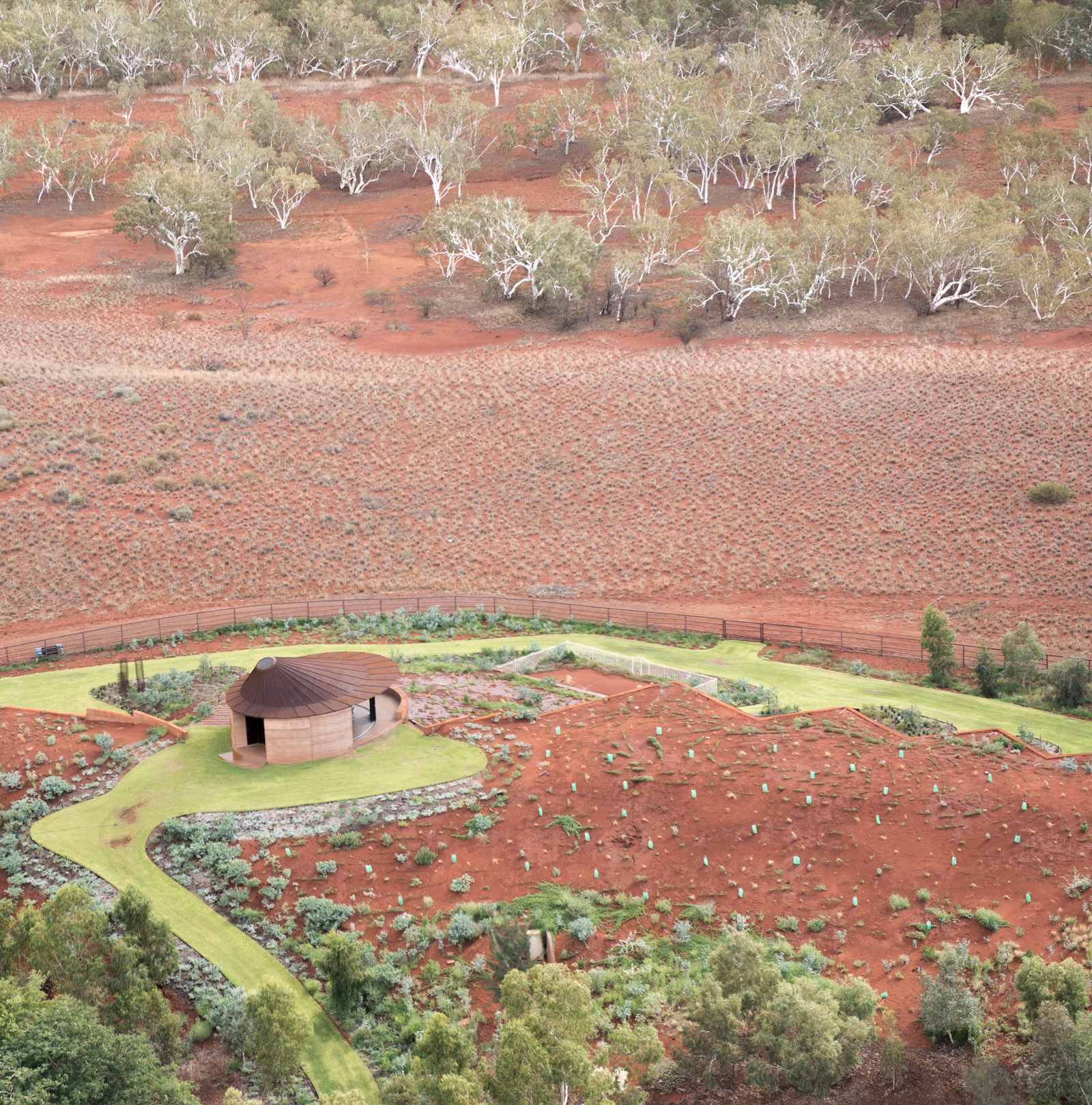 The Musterers’ Quarters Chapel, set atop a sand dune in North Western Australia’s remote cattle station, is designed to harmonize with its rugged, sun-scorched landscape. Its oval plan and skewed conical roof of Cor-Ten steel shield visitors from the harsh sun, while a central oculus casts a solar meridian across the floor. Subtle elements like a gold ceiling and inscribed sacred verse complement the spiritual significance of the land, from its Indigenous heritage to the settlers’ graves nearby. The design, inspired by the natural and cultural history of the site, evokes a deep connection to the surrounding landscape.
The Musterers’ Quarters Chapel, set atop a sand dune in North Western Australia’s remote cattle station, is designed to harmonize with its rugged, sun-scorched landscape. Its oval plan and skewed conical roof of Cor-Ten steel shield visitors from the harsh sun, while a central oculus casts a solar meridian across the floor. Subtle elements like a gold ceiling and inscribed sacred verse complement the spiritual significance of the land, from its Indigenous heritage to the settlers’ graves nearby. The design, inspired by the natural and cultural history of the site, evokes a deep connection to the surrounding landscape.
Pinnacles Desert Discovery Centre, Western Australia
By GHDWoodhead, Cervantes, Australia
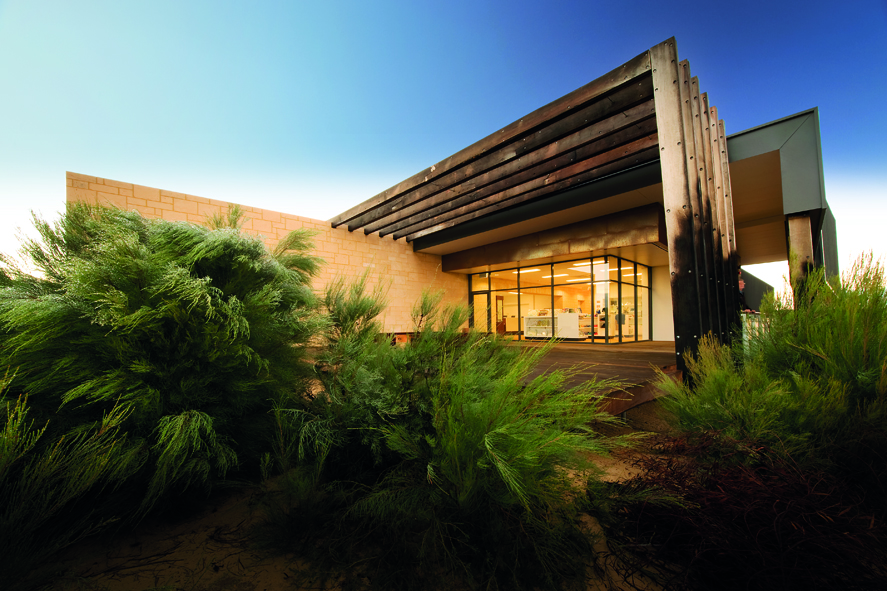
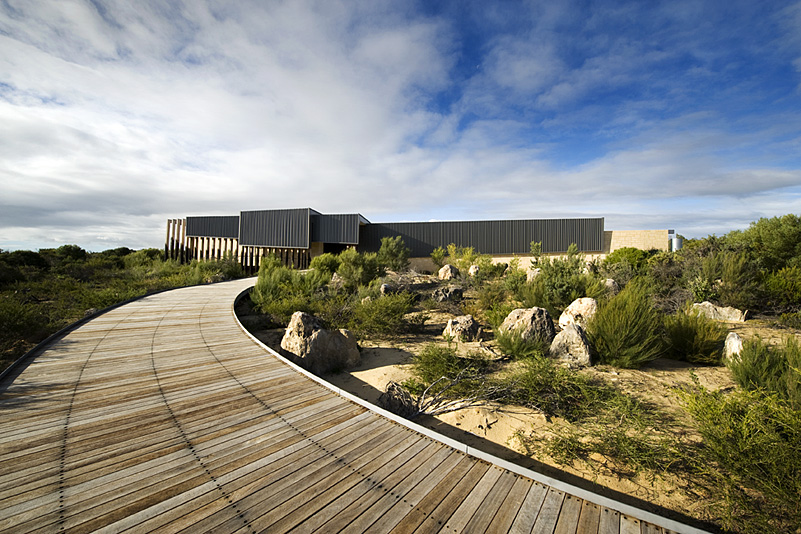 The Pinnacles Desert Interpretation Centre in Western Australia is a thoughtful response to the shifting, dynamic landscape of the Nambung National Park. Designed to harmonize with the desert, the building uses local materials like limestone and timber, referencing the surrounding limestone formations and vanishing Tuart trees. The architecture embraces change, with elements like freestanding walls left to weather and timber components intentionally charred to reflect the role of fire in the environment. The design emphasizes process, creating a structure that adapts to and reflects the ever-changing desert.
The Pinnacles Desert Interpretation Centre in Western Australia is a thoughtful response to the shifting, dynamic landscape of the Nambung National Park. Designed to harmonize with the desert, the building uses local materials like limestone and timber, referencing the surrounding limestone formations and vanishing Tuart trees. The architecture embraces change, with elements like freestanding walls left to weather and timber components intentionally charred to reflect the role of fire in the environment. The design emphasizes process, creating a structure that adapts to and reflects the ever-changing desert.
Wanarn Clinic
By Kaunitz Yeung Architecture, NT, Australia
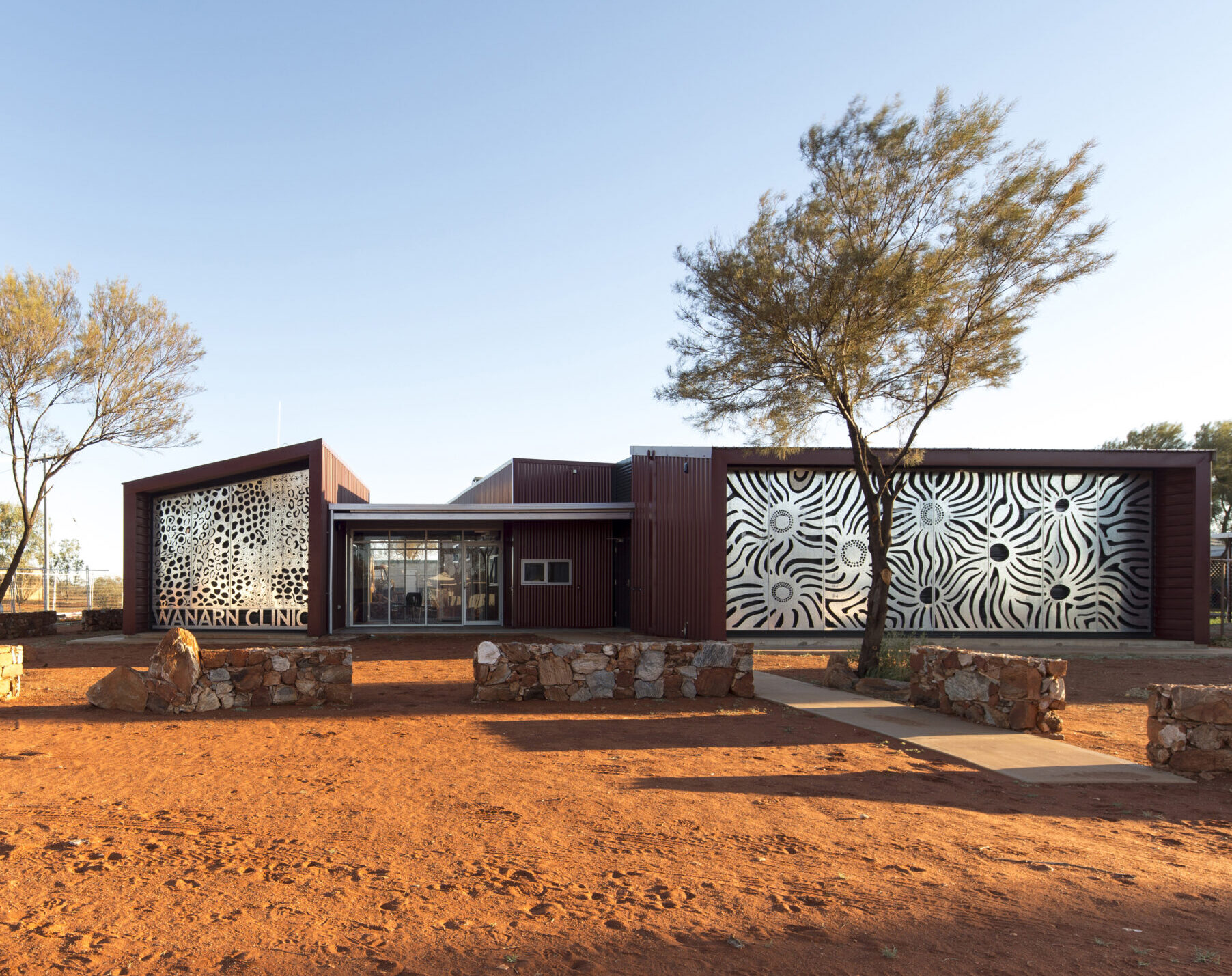
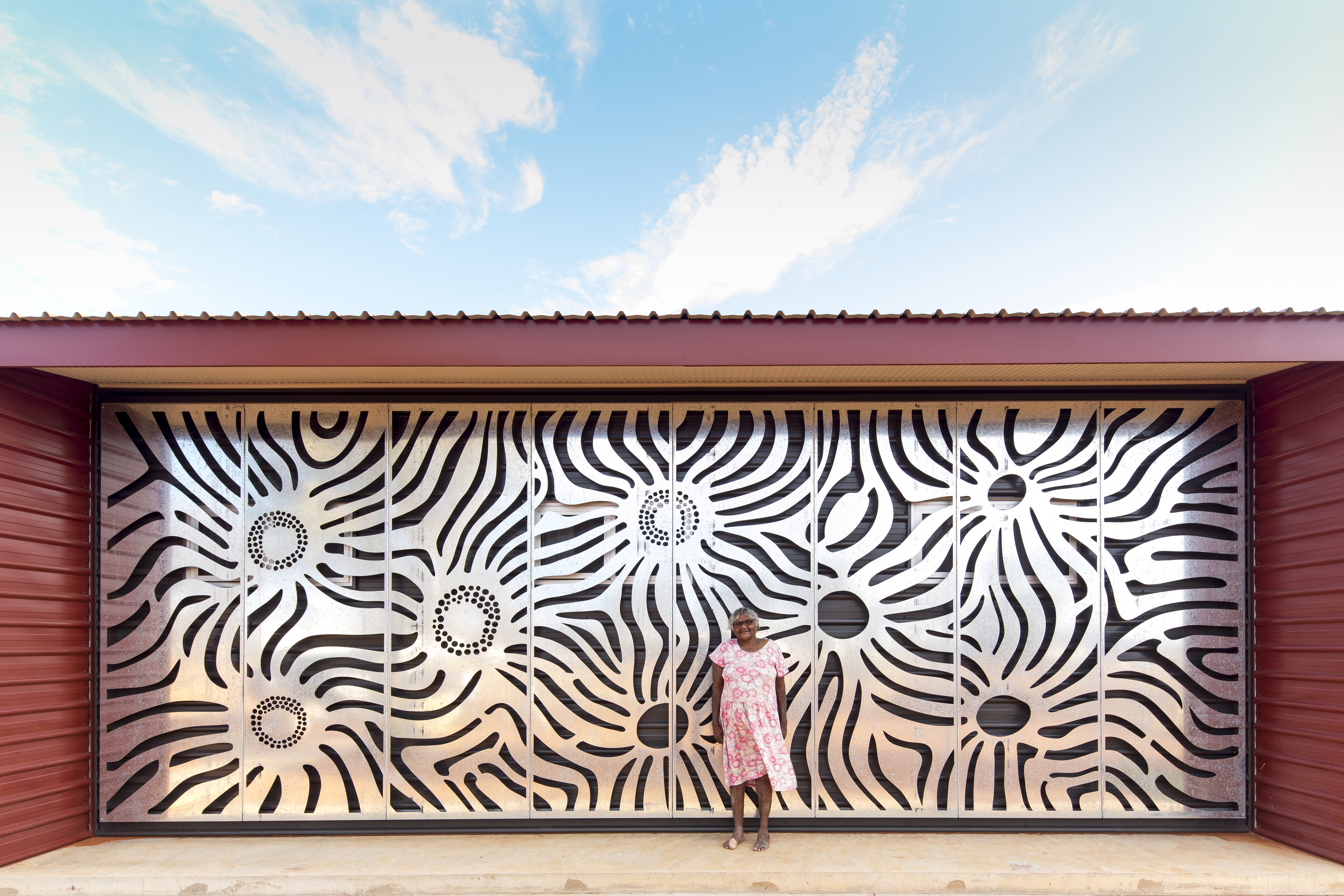 The Wanarn Clinic, located in the remote Gibson Desert, was designed by the Ngaanyatjarra Health Service to respect the land, people and culture of the community it serves. The architect lived on-site during the design process, gathering input through informal “yarning” sessions, which shaped features like local stone walls and art screens that blend the clinic into the desert landscape and celebrate Indigenous culture. The environmental design, including optimized building orientation, shade screens and enhanced insulation, ensures the clinic performs efficiently in the harsh desert climate while fostering a deep sense of community ownership and pride.
The Wanarn Clinic, located in the remote Gibson Desert, was designed by the Ngaanyatjarra Health Service to respect the land, people and culture of the community it serves. The architect lived on-site during the design process, gathering input through informal “yarning” sessions, which shaped features like local stone walls and art screens that blend the clinic into the desert landscape and celebrate Indigenous culture. The environmental design, including optimized building orientation, shade screens and enhanced insulation, ensures the clinic performs efficiently in the harsh desert climate while fostering a deep sense of community ownership and pride.
St Barbara Square Kalgoorlie Central Canopy
By Iredale Pedersen Hook Architects, Kalgoorlie, Australia
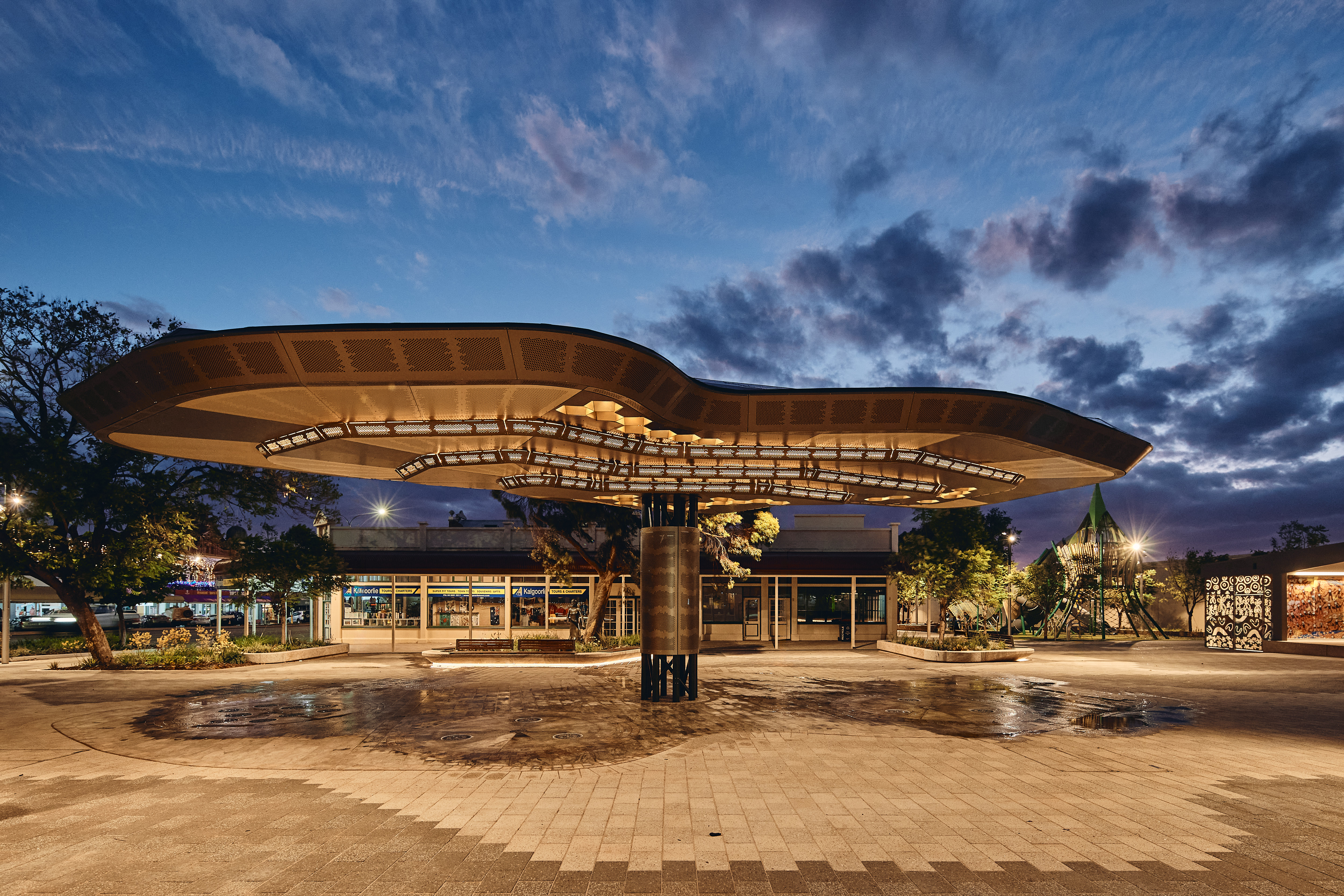
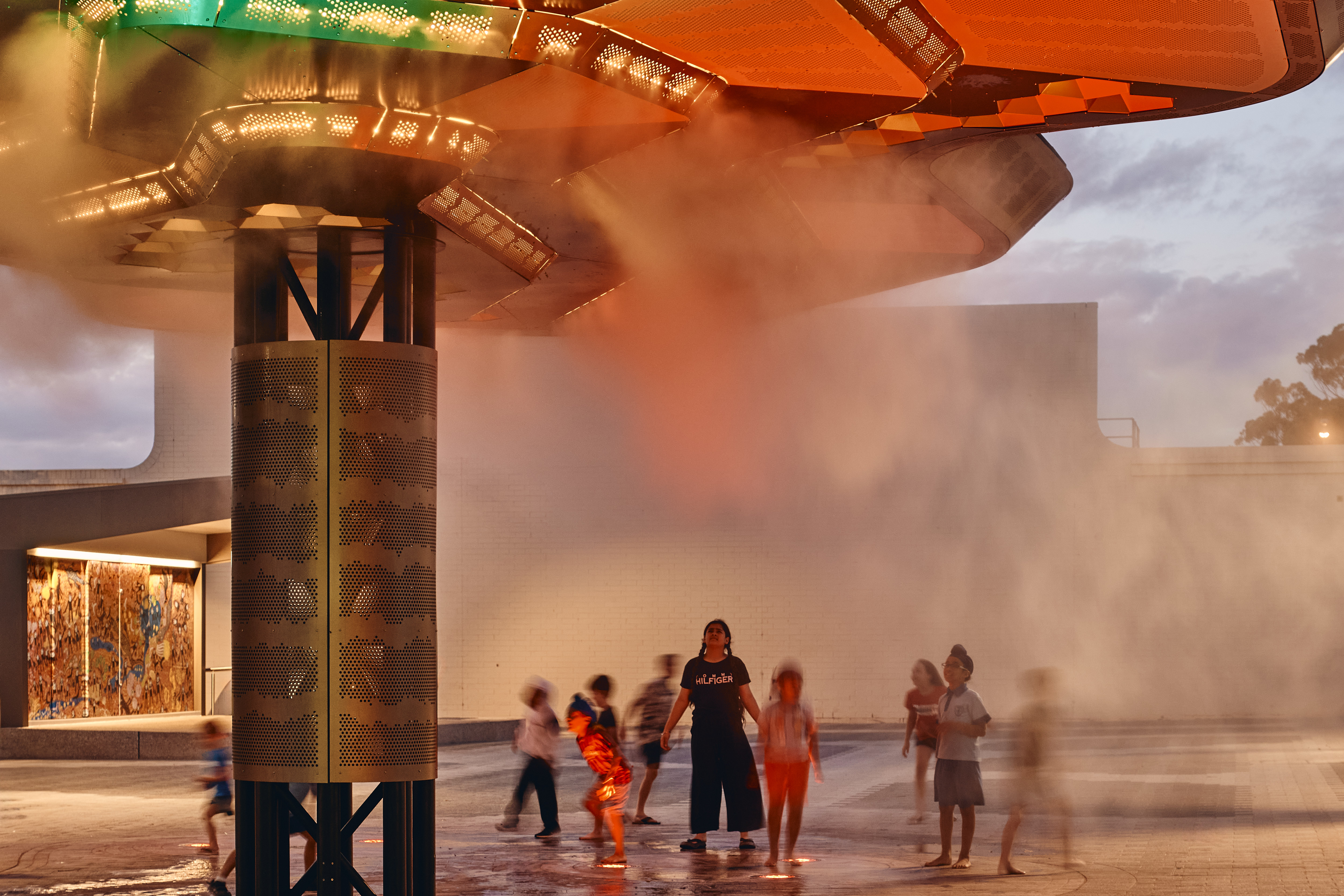 St Barbara Square in Kalgoorlie transforms a laneway into a vibrant public space, celebrating the city’s mining heritage and desert environment. The design integrates geological and cultural narratives, with ground plane banding reflecting greenstone and granite formations, while water features evoke gnammas and springs, offering cooling and play in the semi-arid climate. A striking canopy, inspired by mining processes, provides shade and shelter while incorporating misting, lighting, and sound for an engaging visitor experience. Thoughtful features like LED lighting and water recycling enhance sustainability, making the square a dynamic and welcoming community destination.
St Barbara Square in Kalgoorlie transforms a laneway into a vibrant public space, celebrating the city’s mining heritage and desert environment. The design integrates geological and cultural narratives, with ground plane banding reflecting greenstone and granite formations, while water features evoke gnammas and springs, offering cooling and play in the semi-arid climate. A striking canopy, inspired by mining processes, provides shade and shelter while incorporating misting, lighting, and sound for an engaging visitor experience. Thoughtful features like LED lighting and water recycling enhance sustainability, making the square a dynamic and welcoming community destination.
The Globe Hotel
By m3architecture, Barcaldine, Australia
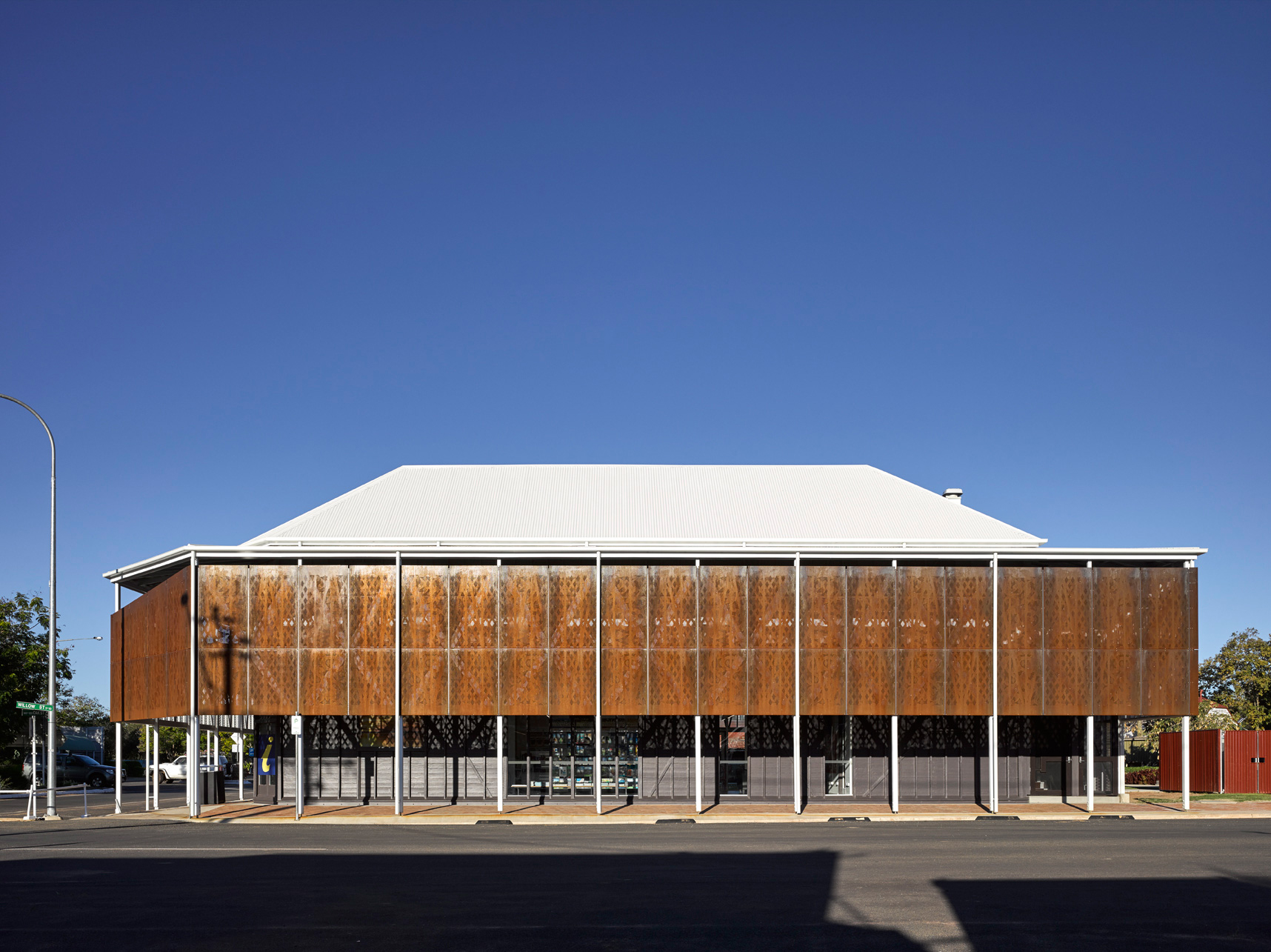
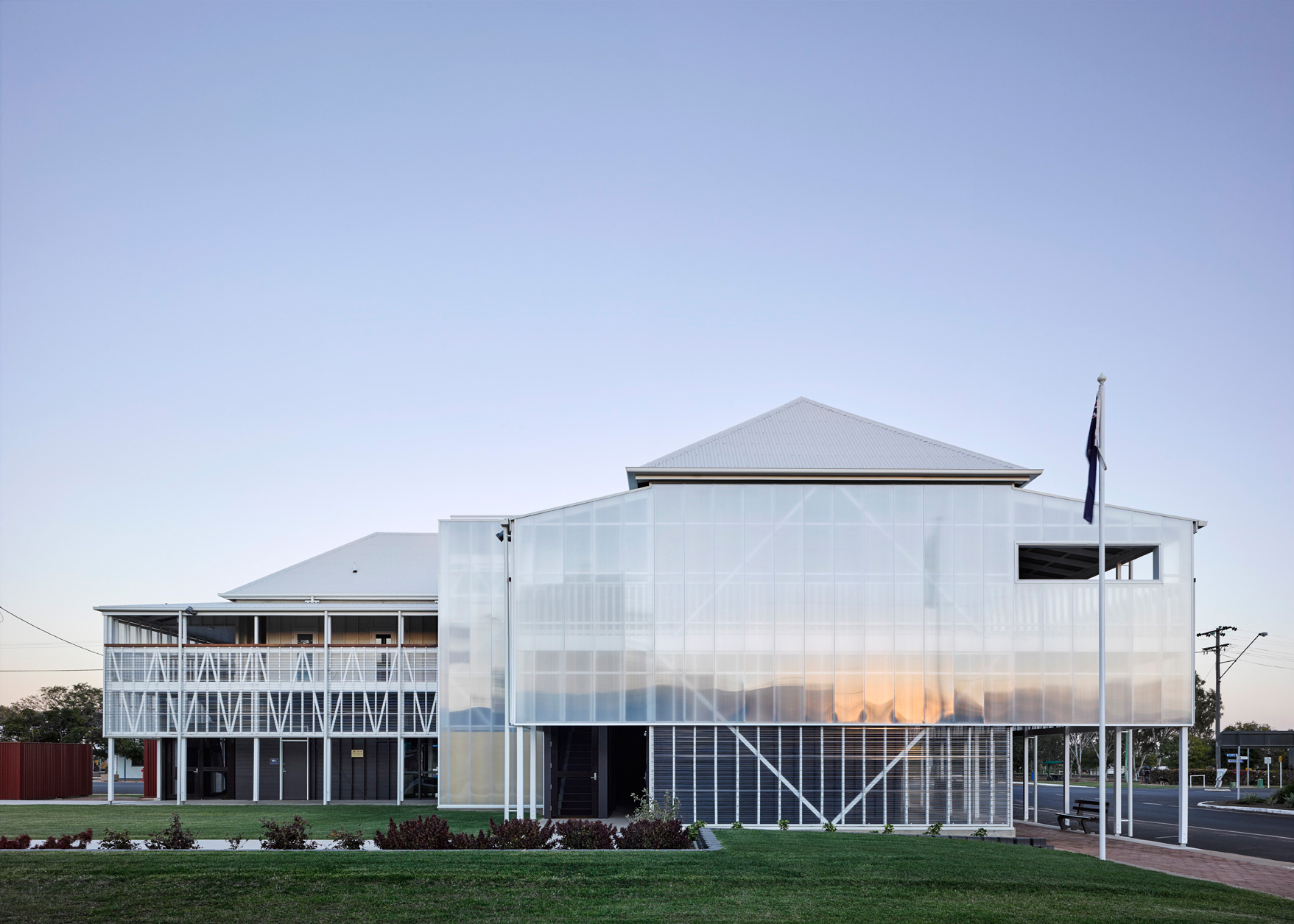 This project transforms a historic 1910 outback Queensland pub into the first stage of a cultural and tourism hub, blending contemporary design with the town’s heritage. The reimagined building features an information center, history room and art gallery shell while retaining its iconic single-skin construction. Designed for warm and arid conditions, it incorporates weathered steel screens in soil tones, layered verandahs and translucent cladding to provide protection and allow cross ventilation. These elements celebrate the pub’s original structure while creating new opportunities for cultural and economic growth.
This project transforms a historic 1910 outback Queensland pub into the first stage of a cultural and tourism hub, blending contemporary design with the town’s heritage. The reimagined building features an information center, history room and art gallery shell while retaining its iconic single-skin construction. Designed for warm and arid conditions, it incorporates weathered steel screens in soil tones, layered verandahs and translucent cladding to provide protection and allow cross ventilation. These elements celebrate the pub’s original structure while creating new opportunities for cultural and economic growth.
Architects: Want to have your project featured? Showcase your work by uploading projects to Architizer and sign up for our inspirational newsletters.
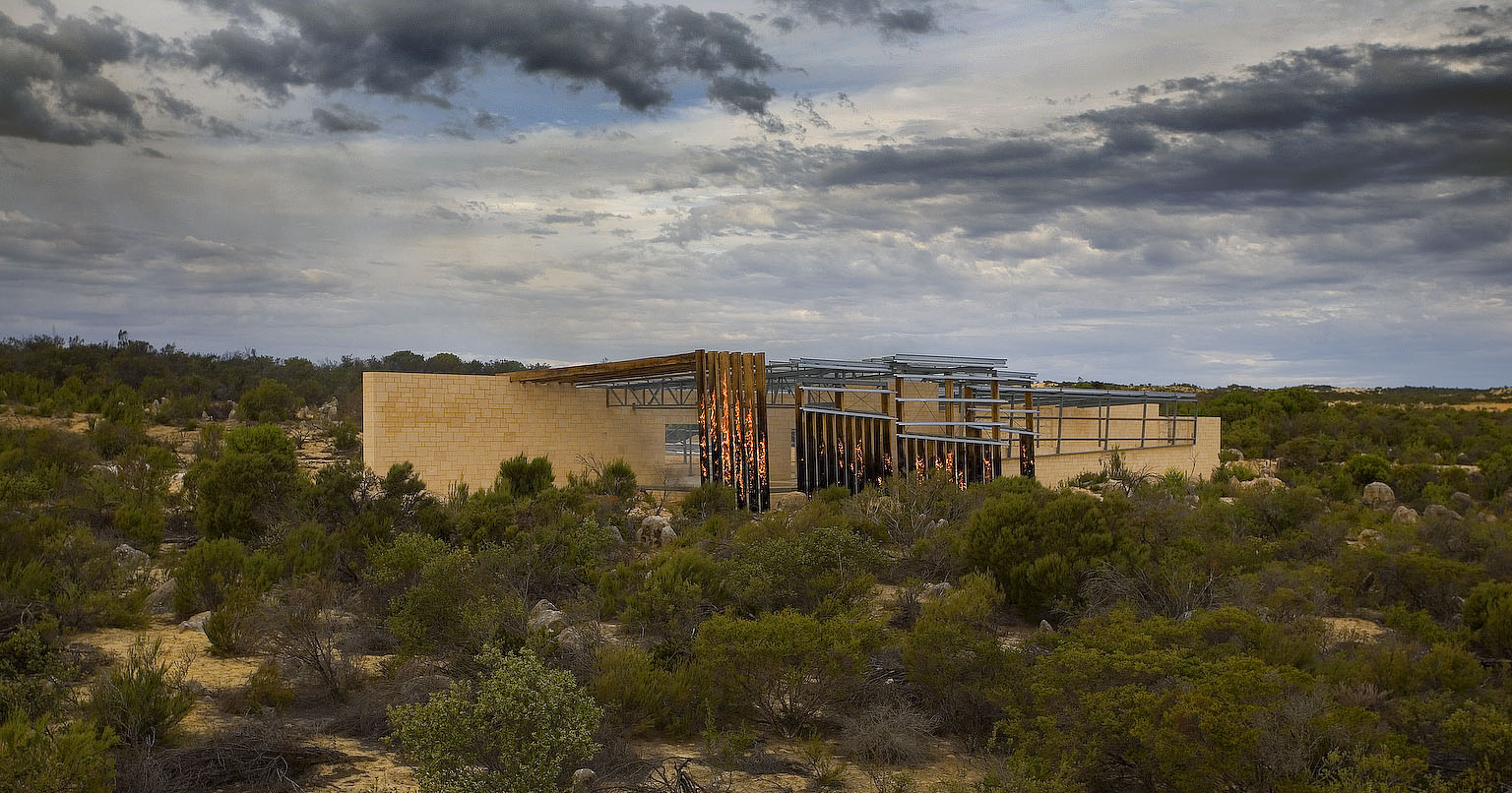
 Fitzroy Crossing Renal Hotel
Fitzroy Crossing Renal Hotel  Pinnacles Desert Discovery Centre, Western Australia
Pinnacles Desert Discovery Centre, Western Australia  Remote Desert Chapel
Remote Desert Chapel  The Globe Hotel
The Globe Hotel  Wanarn Clinic
Wanarn Clinic 